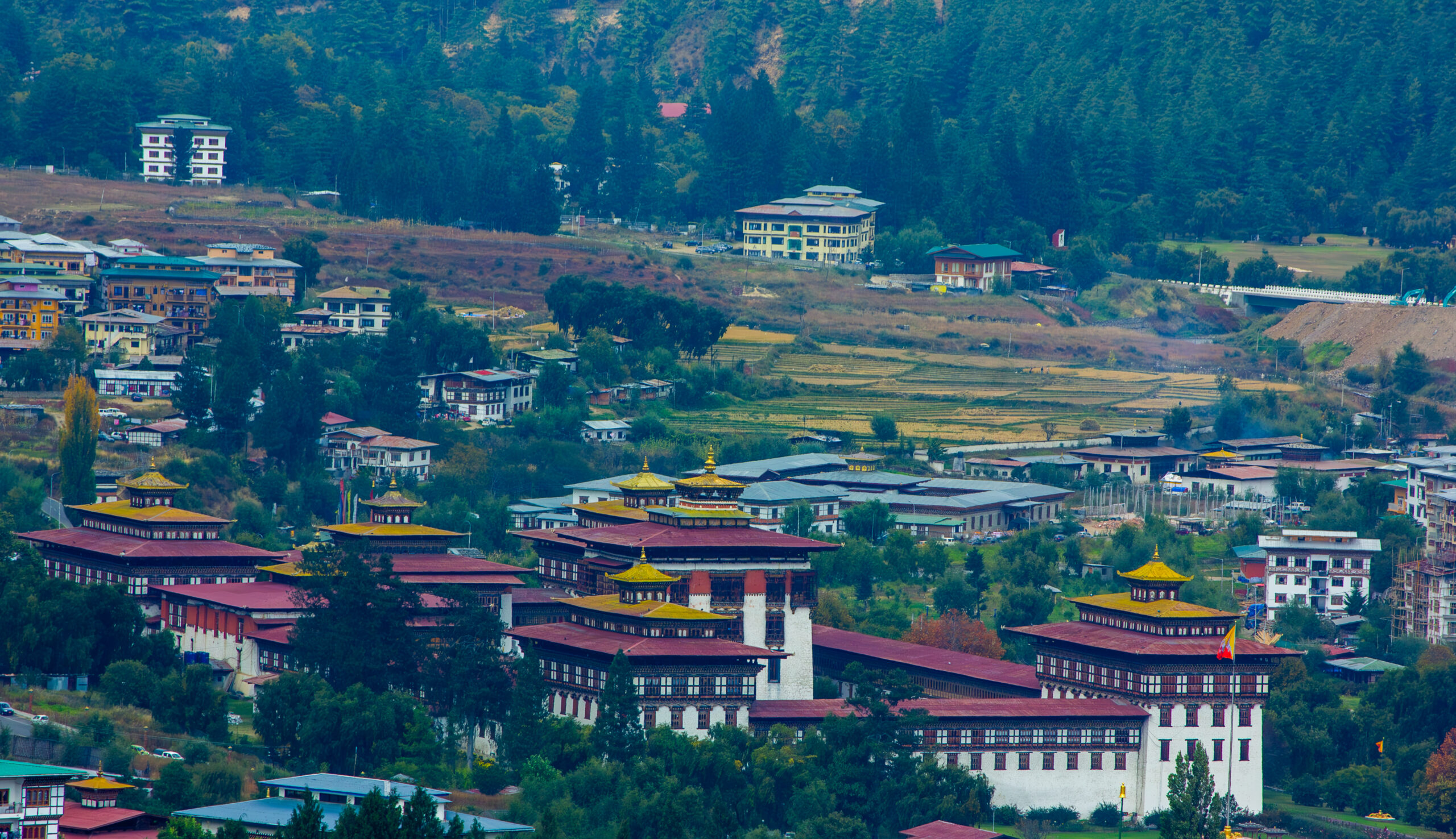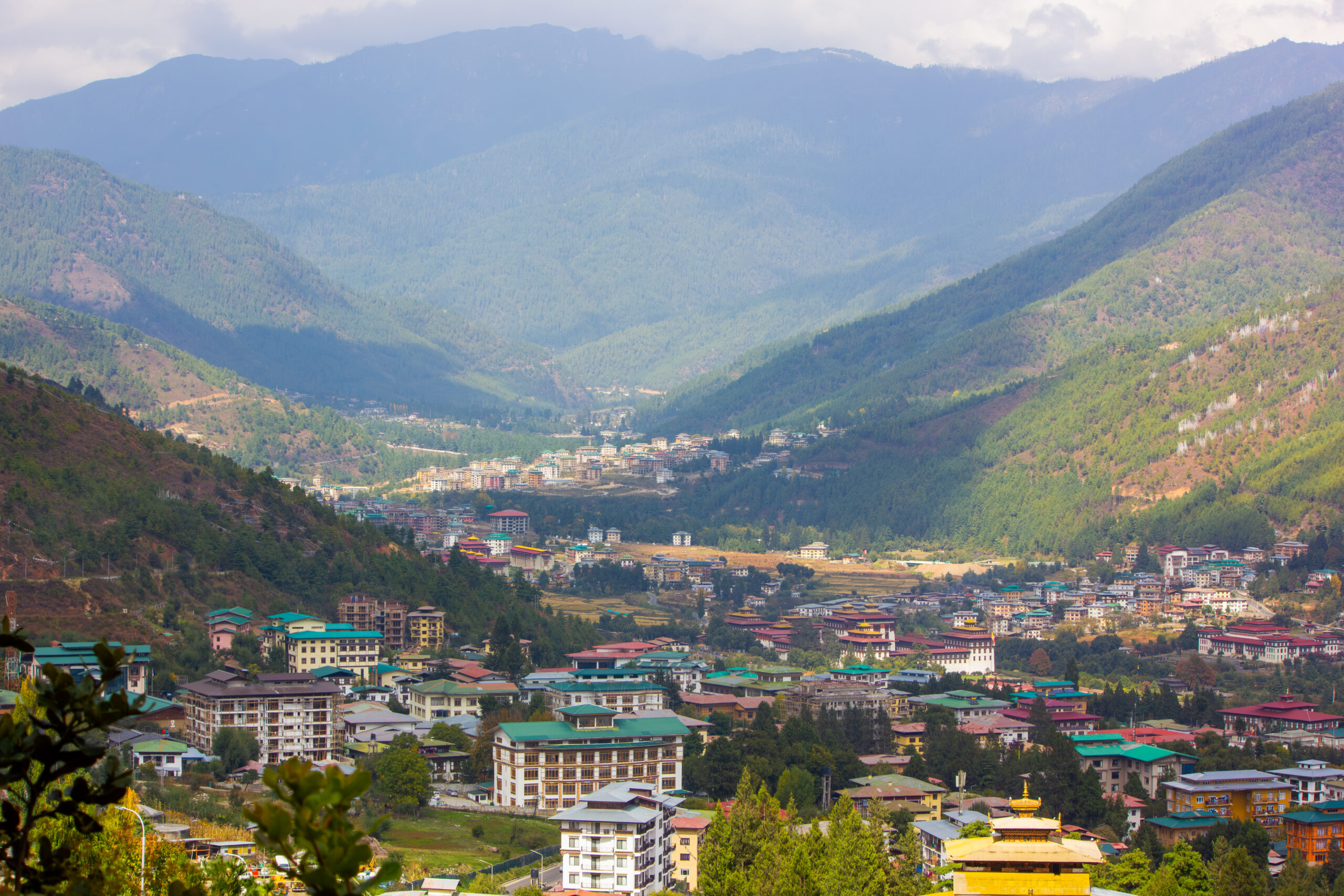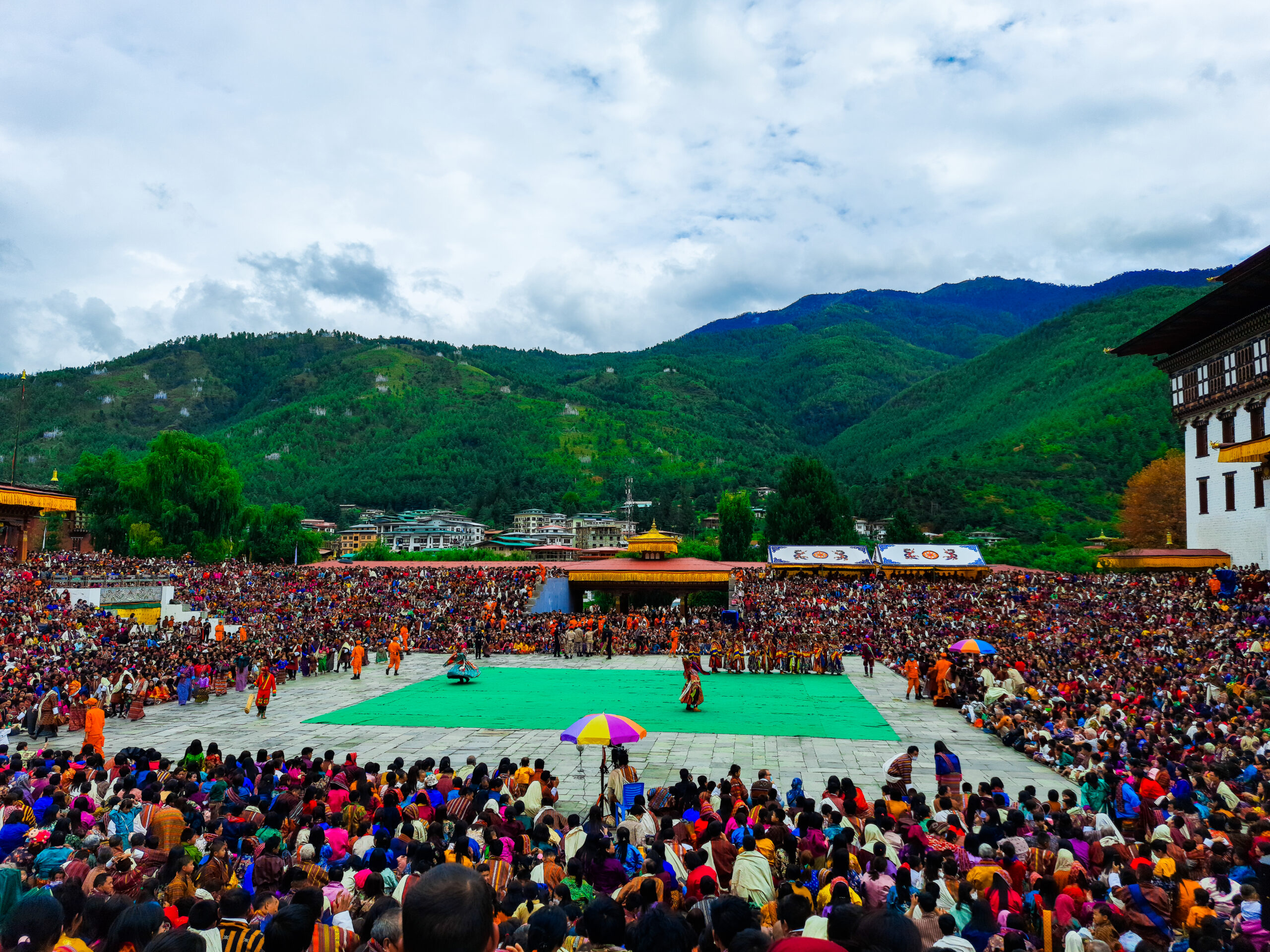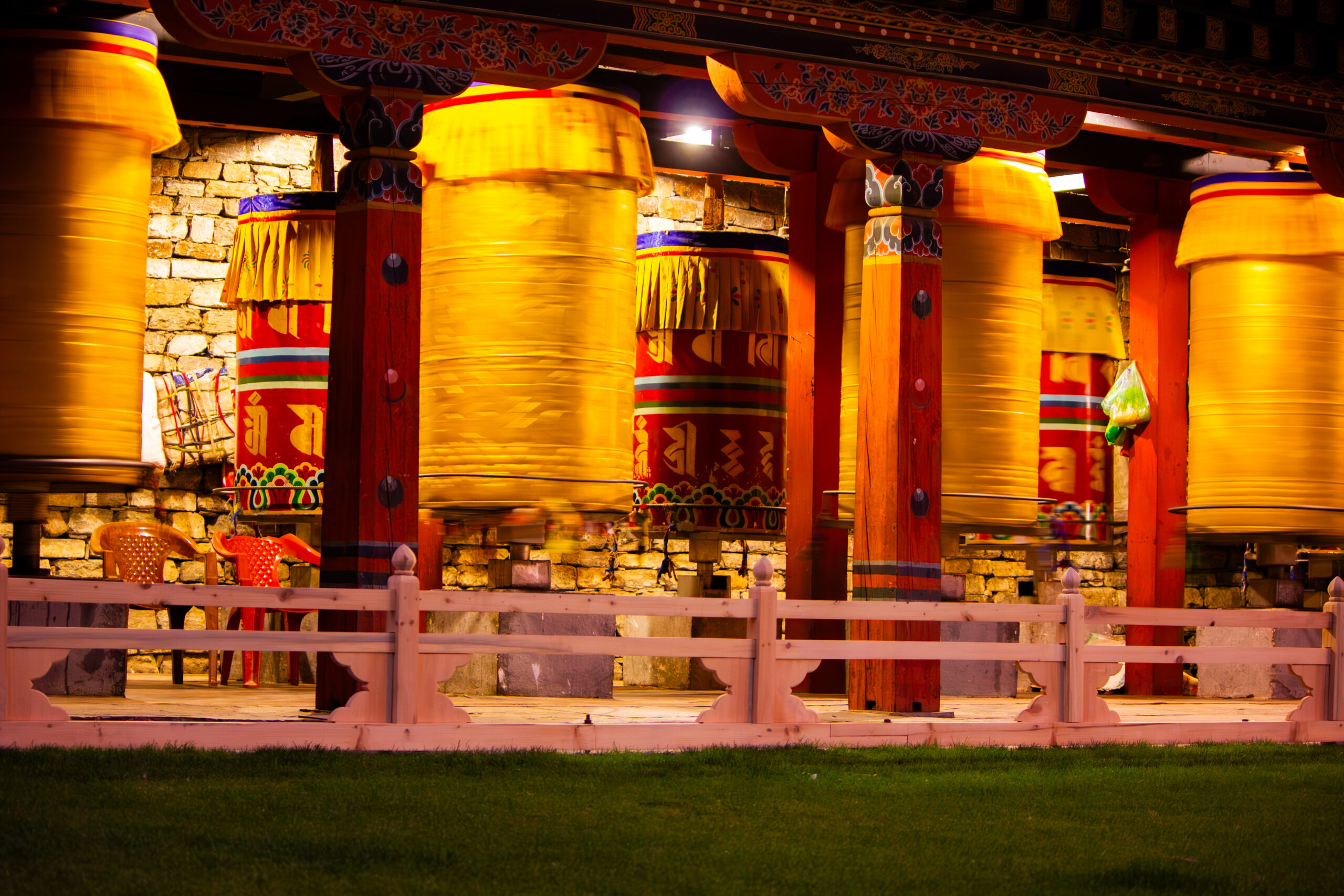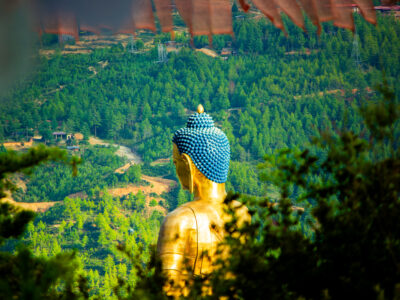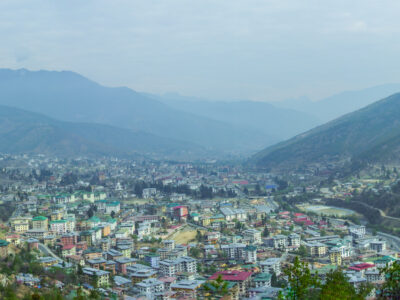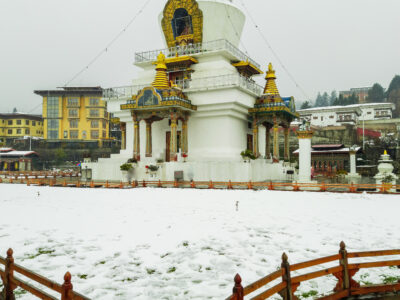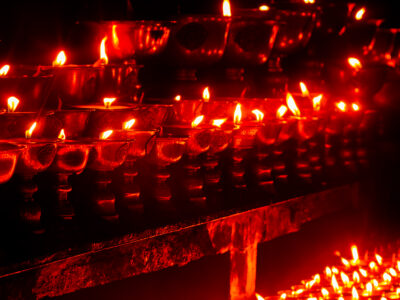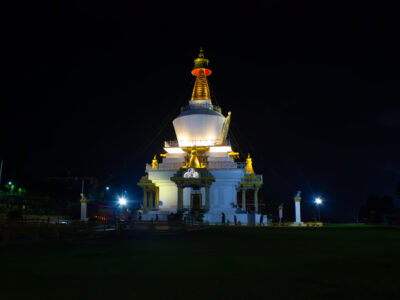At a Glance
Duration: 10 days
Group Size: Up to 16 participants
Tour Grading: Easy to Moderate
Activity: Cultural, Arts, and Heritage
Sights: Tiger’s Nest monastery, Punakha Dzong, Paro Dzong, Phobjikha Valley, Thimphu Centenary Market, Kuenselphordang (Buddha Dordenma), Painting School of Arts and Crafts, Textile Museum, National Museum, Madman Temple.
Best Season: February through November
Trip Route: Paro – Thimphu – Punakha – Phobjikha – Bumthang – Punakha – Paro
The 10-Day-visit will cover six valleys of Bhutan, which will give you the mixture of immense experiences in between the unique tradition and modern era. Swinging by a local farmhouse with a nice hot stone bath and up until heart pumping moments by the longest suspension bridges in the country can be a few ones. Locals believe it to be auspicious and lucky if you are blessed by a phallus – wooden effigy that you could find it while taking a leisurely walk to the Divine Madman’s temple in Punakha. You may also find the roads very narrow and rocky once you cross Wangduephodrang but with our professional drivers, that would be the least you would have to think about. Festivals in Bhutan can be really colorful and something you wouldn’t have seen elsewhere. This is an annual event where locals dress up in their best attires and do a meet with friends and family over a traditional pack lunch in the green pastures.
Trip Highlights
• The only capital in the world without traffic lights
• Bhutan Postal Museum, Evolution of Communication Systems in Bhutan
• Phobjikha – the valley of the sacred Black-Necked Cranes
• Stunning views from the passes of Pele la and Yotong la
• The Vanguard of the Warriors, Trongsa Dzong (fortress), Ta (watchtower) Dzong
• Chimi Lhakhang – the temple of fertility
• Tiger’s Nest – an exhilarating task of 2 hrs climb and another 1.5 hrs retrieving steps
Day 1: Arrive Paro, drive to Thimphu
On arrival, drive for 20 minutes to Paro town (2300m). From here, walk to Paro Dzong crossing the cantilever bridge. This 17th century fortress will introduce us to the Bhutanese way of life.
Drive to Thimphu (2400m) nation’s capital. In Thimphu check in hotel and take rest. Later visit the Memorial Chorten (stupa); a monument built in memory of the Third King of Bhutan by the Late Royal Grand Mother Ashi Phuntsho Choden Wangchuk in 1974. It is also dedicated to the world peace and prosperity. People from all walks of life circumambulate the chorten but mostly once see those elderly people throughout the day hauling away at a room size giant prayer wheel right next to the entrance.
In the evening, visit Tashichho Dzong – in its present incarnation, was consecrated as late as 1969 and this building is a visual delight. Unlike other Dzongs this ‘peacetime’ one has three entrances; one for the common folk, leading to the administrative establishment; another to the monastic section in whose courtyard Tsechu has performed annually and the third only for Royalty.
Overnight in the hotel.
Day 2: Thimphu Sightseeing
Folk Heritage Museum –The restored three-storey timber building replicates a traditional farmhouse and gives a pure glimpse into rural Bhutanese life and its households. In an effort to maintain our knowledge of indigenous natural resources, native trees and plants that had domestic uses in a rural Bhutanese household are grown, creating an oasis of greenery, right in the heart of the capital city of Thimphu.
National Textile Museum – Under the Royal patronage of the youngest Queen Mother, Ashi Sangay Choden Wangchuck, the museum preserves the national textile and helps women empowerment. The helps women from the central and eastern part of Bhutan through weaving. The museum also focuses on Royal ghos, including the wedding clothes worth by the fourth king and his four wives.
Centenary Farmers’ Market – Every Saturday and Sunday, most of the Thimphu population congregate on the banks of the river where the weekend market is held. Here villages from the valley and other nearby villages come to sell their agriculture products.
Afternoon visit the Post Office Museum and make customized stamps. The museum was established in November, 2015 to commemorate the 60th Birthday of the fourth King. The museum tells story about Bhutan’s development and progress over time. Methods such as anecdotes, artifacts and the rich assortment of stamps the country has developed are used.
Jungzhi Paper Factory – Tree barks of Daphne and Dhekap are used to make this traditional paper. You could indulge in the whole process and try making souvenirs of your own. The paper was originally used by monasteries to manuscript and prayer books.
In the evening, drive to Kuensel Phodrang – Buddha Point – This 169-foot bronze statue of Buddha Dordenma, Vajra throne Buddha symbolizes indestructibility. The view of Thimphu valley from this point is spectacular and beautiful, especially at night.
Overnight in the hotel.
Day 3: Punakha
Thimphu to Punakha | 75 km 3 hours
Today after breakfast we will drive back to Punakha Valley (1220m). Punakha served, as the capital of Bhutan until 1955 and today is the winter residence of the Central Monk Body.
On the way, we will stop at Dochula pass (3150m) to see 108 Chortens and if we are lucky we will see the spine of the Himalayas. Keep an eye on Gangkar Puensum, which is the world’s highest unclimbed mountain.
With lunch stop over at Messina, we will then visit the Madman’s Temple (Chimi Lhakhang) built in 1499 and is located on the hillock in the center of the valley. It is dedicated to Lama Drukpa Kunley (1455-1529) who used humor, songs and outrageous behavior to dramatize his teachings and hence was also known as “ Divine Madman”. It is widely believed that childless couples that pray at this temple are usually blessed with children.
In Punakha, we will drive along the Pho Chu River and then cross the suspension bridge and after a short pleasant walk enter the historic 17th-century Fortress ‘Punakha Dzong’. It was built in 1637 by Zhabdrung Ngawang Namgyal and connected to Bhutan’s historical traditions.
Overnight in the hotel.
Day 4: Phobjikha
Punakha to Phobjikha | 85 Km 3.5-hour drive
Today, we walk up to Khamsum Yulley Namgyal Chorten. The mother of our 5th king built this monastery and took eight long years to complete it. A bridge provides access to a sweaty 45-minute hike uphill to the chorten. To avoid heat, early morning start off would be advisable. Beyond the chorten, the road leads up to Kabesa village and Uma Como to Tashithang and then continues all the way to the Gasa dzong and the ending point of Laya-Gasa trek.
After lunch we thendrive to Phobjikha (Gangtey) valley (3000m).
Phobjikha (3000m) is country’s highest wetland and the winter home for over 400 Black Necked Cranes. These birds are endangered species and every winter they come to roost here from Tibet.
In Phobjikha after checking in to the hotel, we do the nature trail walk – the best and most popular short walk (1.5hrs) leads downhill from the mani stone wall just north of the Gangtey goenpa to the Khewa lhakhang. The trail further descends to Semmchubara village and drops down right at the chorten into the edge of the forest and call it a night.
Overnight in the hotel.
Day 5: Bumthang
Phobjikha to Bumthang | 175 km 4.5-5 hour drive
Today in the morning we will walk up to the newly renovated Drechagling monastery in Ngenglung. It is near Hotel Dewachen and was first established by one of the greatest Buddhist master, Longchenpa (1308-1363). After this visit we drive for Bumthang (2650m).
En-route we stop at Trongsa for lunch, visit Trongsa Dzong, the ancestral home to Bhutan’s monarch where novice monks recite mantras or practice on sacred horns, flutes and drums. Bumthang is 68 km from here. The drive to Bumthang takes you over the picturesque Yotong La Pass and down into Chhume Valley, home to Bhutan’s famous Yatra weaving. See the weavers create their intricate handiwork and browse the finished textiles.
Overnight in the hotel.
Day 6: Bumthang
Explore Bumthang
Begin the day by exploring the Palace of Wangdichhoeling, home to the second King. Note the auspicious prayer wheels then head up the valley, taking in the grand Kurjey Lhakhang, considered one of Bhutan’s most auspicious monuments. Once the resting place of Guru Rimpoche and Jambay Lhakhang, Kurjey Lhakhang is where the early winter festivals are held, drawing thousands of Bhutanese to receive blessings. Head back into town and visit Tamshing Monastery. Visit to Maebar Tsho – some of Pema Lingpa’s greatest finds – Maebartsho or the “Flaming Lake”, which is one of the great pilgrim sites of Bhutan
Overnight in the hotel.
Day 7: Punakha
Bumthang to Punakha | 220km, 7.5hours
Today we drive back to Trongsa for lunch and visit the Ta Dzong if we missed it earlier. Now being converted into a museum, it has an unusual tower section with wings extending in front of the main building. Entering this you can visit the chapel dedicated to Jigme Namgyal and enjoy a bird’s eye view of the Dzong stretched below you.
We then drive onward to Punakha. In the evening, check into hotel and rest.
Overnight in the hotel.
Day 8: Paro
Punakha to Paro | 125km, 4Hours
Morning drive to Paro followed by an orientation tour of Paro valley’s main sights including the Rinpung Dzong with its cantilever bridge; Kyichu Lhakhang, a most revered temple boasting an Orange tree that perpetually bears fruit and the ruins of the Drugyel Dzong – the site of the fort of Drukpa victory from which the Bhutanese effectively repelled constant attacks from Tibet and from where, on clear days, the 24,000 feet snow domed peak of awesome Mt. Jumolhari can be seen.
Overnight in the hotel.
Day 9: Paro
Paro – Hike to Taktshang (The Tiger’s Nest)
By now we all may have acclimatized to prepare to walk up to the famous Tiger’s Nest. The monastery is the most famous in Bhutan and recently has been listed one of the ten holiest places in the world. This is one of the highlights of the trip.
It’s perched on the high cliff of 900 meters above the floor of Paro valley. It is named Tiger’s nest because Guru Rimpoche is said to have flown to the site on the back of a tigress in the 8th century. This monastery is the holiest in Bhutan. The five-hour walk to the monastery involving some intense but rewarding climb over 900m cleanses both the soul and the body.
Overnight in the hotel.
Day 10: Departure Transfer
After early morning breakfast depending upon flight schedule drive to Paro International Airport for departure to onward destination bid farewell.

